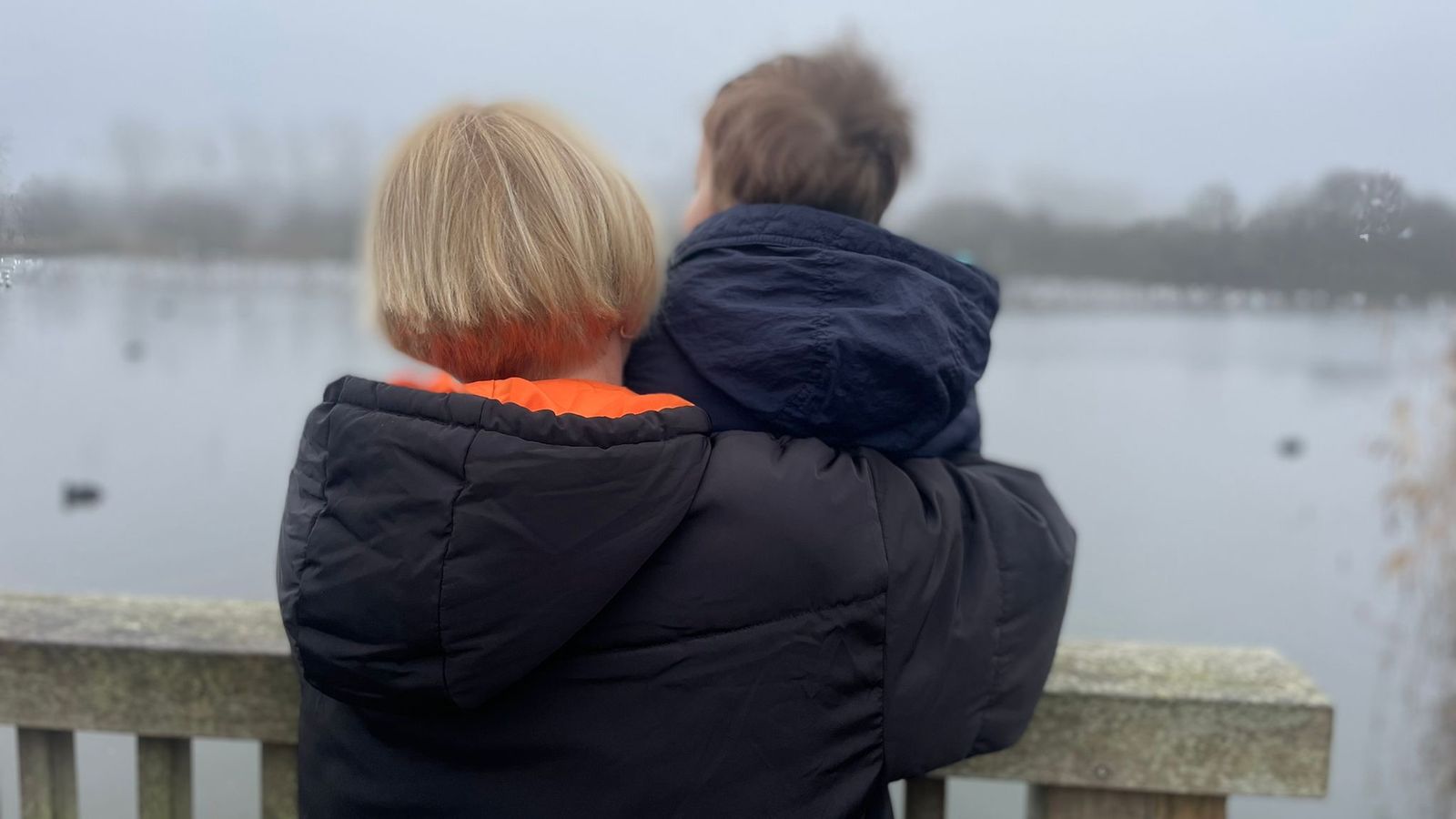Kinship carers make big sacrifices. Some struggle to afford to look after the children they love

“There was no support at all, I found the first couple of months, If I’m honest, horrendous – absolutely horrendous.”
Sandra, 58, is feeding the ducks with her four-year-old grandson Sam.
Until a few years ago, she was busy planning her retirement – but then found herself catapulted into the role of primary carer for Sam, when his parents could no longer look after him.
He was just 14 months old then and was showing signs of trauma.
Sandra picks Sam up so he can get a better view of the ducks on the lake. She holds his hand tightly, as she explains how her life has changed.
“It is very different,” she says. “I’d planned to retire in five years’ time. I can’t do any of that any longer as I’ve spent most of my savings to bring him up.”
Among the costs Sandra is facing on her own are nursery school fees and Sam’s therapy, which was just under £2,000 a month. She feels unsupported by the social care system and thinks there should be more recognition for carers in her position.
“I don’t feel I’ve had any practical help or training. We are not viewed the same as foster carers who would be entitled to an allowance,” says Sandra.
A review into the care system published last year found kinship carers, including grandparents and aunts, were undervalued.
Advertisement
Foster care getting £25m – but what about kinship carers?
Today, the government is introducing measures to support wider family networks and help keep children out of the care system, with £45m earmarked for early intervention for struggling families.
They will also provide training and support for kinship carers. Foster care will get a £25m boost, with focus on investing in the recruitment and retention of foster carers.
But with a record number of children in the care system, and that figure set to rise, the question is: will this extra help for children like Sam be enough to reverse that trend?
The government’s reforms are a “seismic moment” says Kinship, the leading organisation supporting thousands of kinship carers on the ground in England and Wales.
But while she is “delighted” with the progress on this issue, Kinship’s chief executive Dr Lucy Peake says there is still work to be done on ensuring a sustainable funding model for the plans.
In a statement, she said: “The government needs to act with urgency as more than three in 10 kinship carers who don’t get the support they need tell us that they may no longer be able to care for the children they love – putting thousands of children at risk of entering the care system.”
Lib Dem leader brought up by grandparents after losing parents
Liberal Democrat leader, Sir Ed Davey, is also among those calling for the government to go further.
His party is trying to introduce a bill, led by their education spokesperson Munira Wilson, which would give kinship carers financial support in line with that offered to foster parents.
Sir Ed was himself raised in part by his grandparents. He lost his father when he was four, and his mother died of cancer when he was 15.
The pressure on his grandparents, losing their daughter and raising him is something that stays with him.
“I wrote an essay for my English O-level,” he recalls. “It was all about how it was. Coming home, with the tension, knowing what mum was going through,” he breaks off, visibly overcome with emotion.
“My teacher said he couldn’t mark it because it was so raw … They were all wonderful people. That’s why kinship care is so important. You don’t have that with anyone else.
“I’m sure foster carers and adoptee carers are brilliant and wonderful but not allowing kinship carers to do what they want to do is a serious mistake,” he says wiping away a tear with the back of his hand.
Back at the lake, Sandra and Sam are heading home from their walk.
“This way Nana,” Sam calls back – scooting off ahead of his grandmother.
“He’s got a place to be now. He’s within a family,” says Sandra. “That gives him security, wellbeing and belonging. I think belonging is really important.”